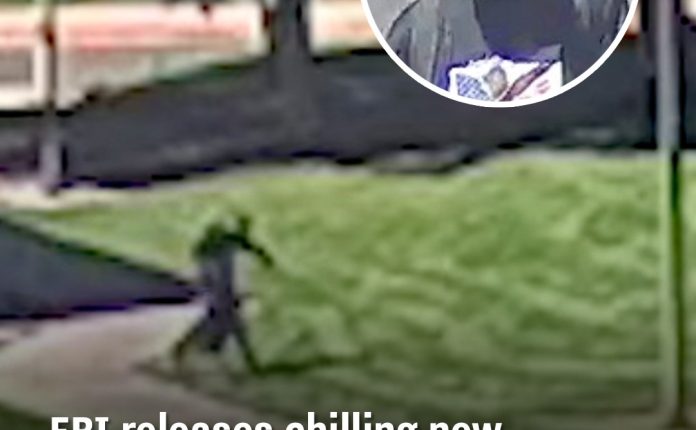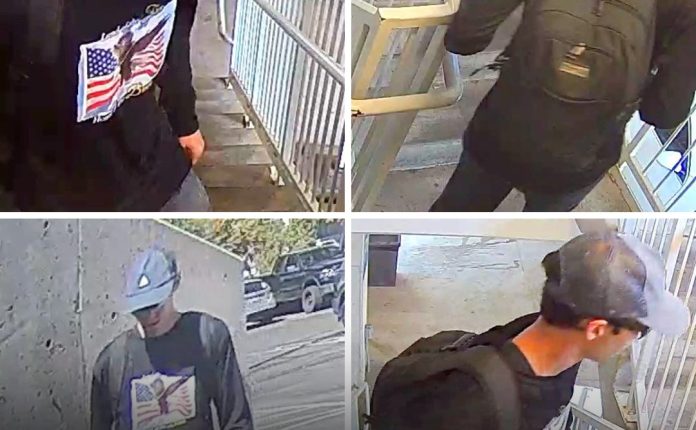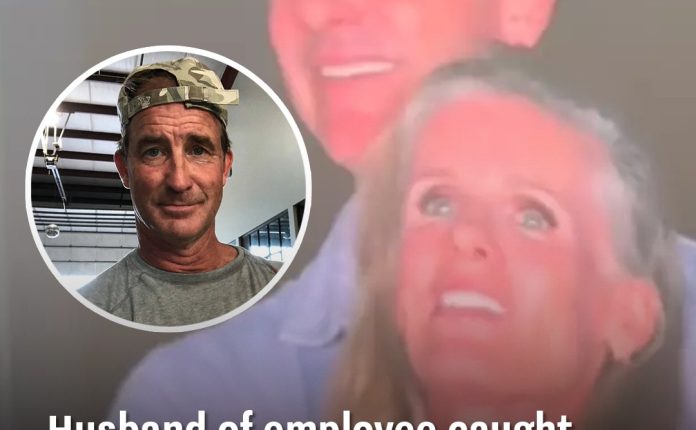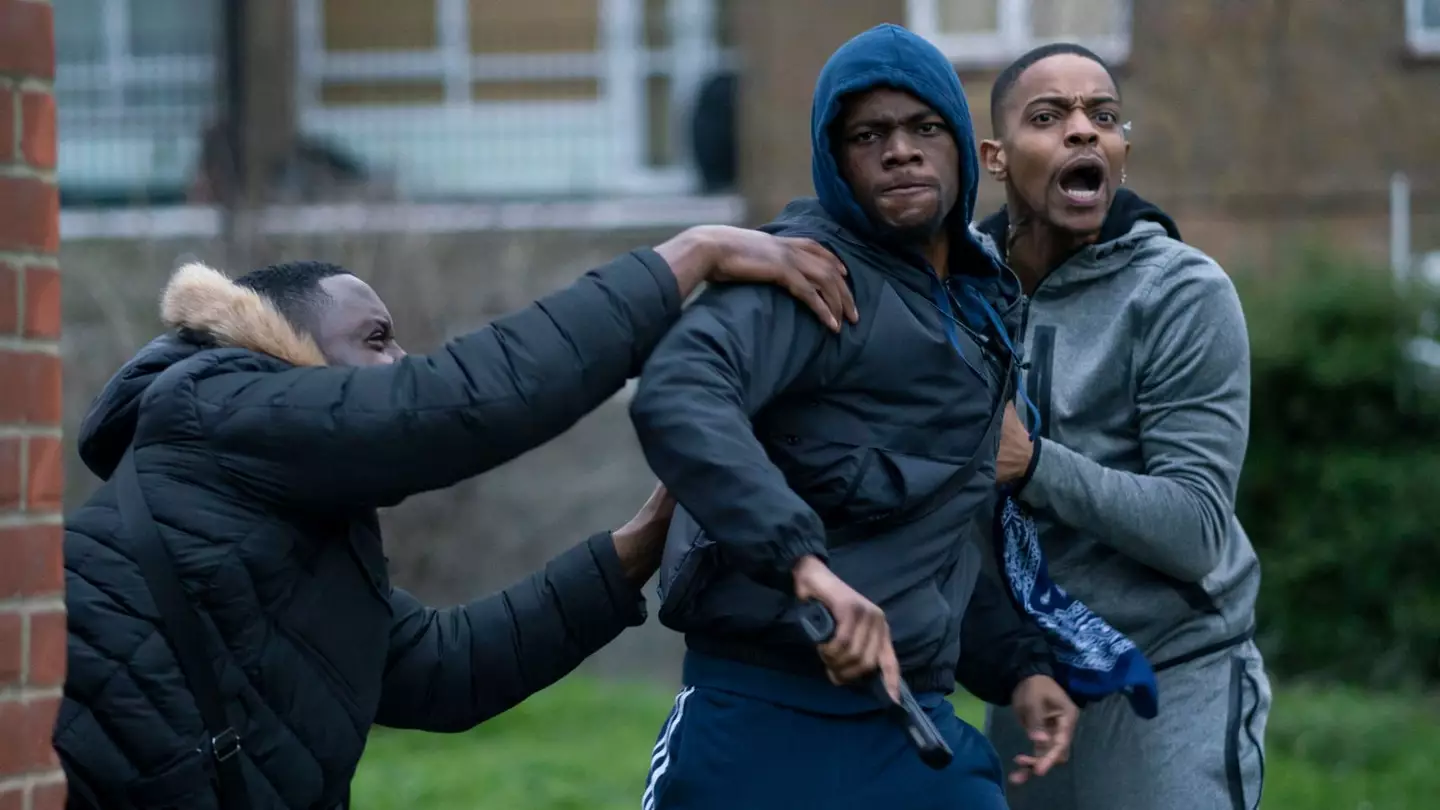
This is not the only time the BBC has aired a controversial film, with one of the ‘most depressing and scariest films’ ever airing for just the fourth time on TV last year on BBC Three.
This time though it will be a highly reviewed, and highly controversial, thriller which was pulled after a ‘machete brawl’ occurred at a screening of the film.
Vue put out the film in 60 sites across the UK and Ireland before pulling it after just one weekend.
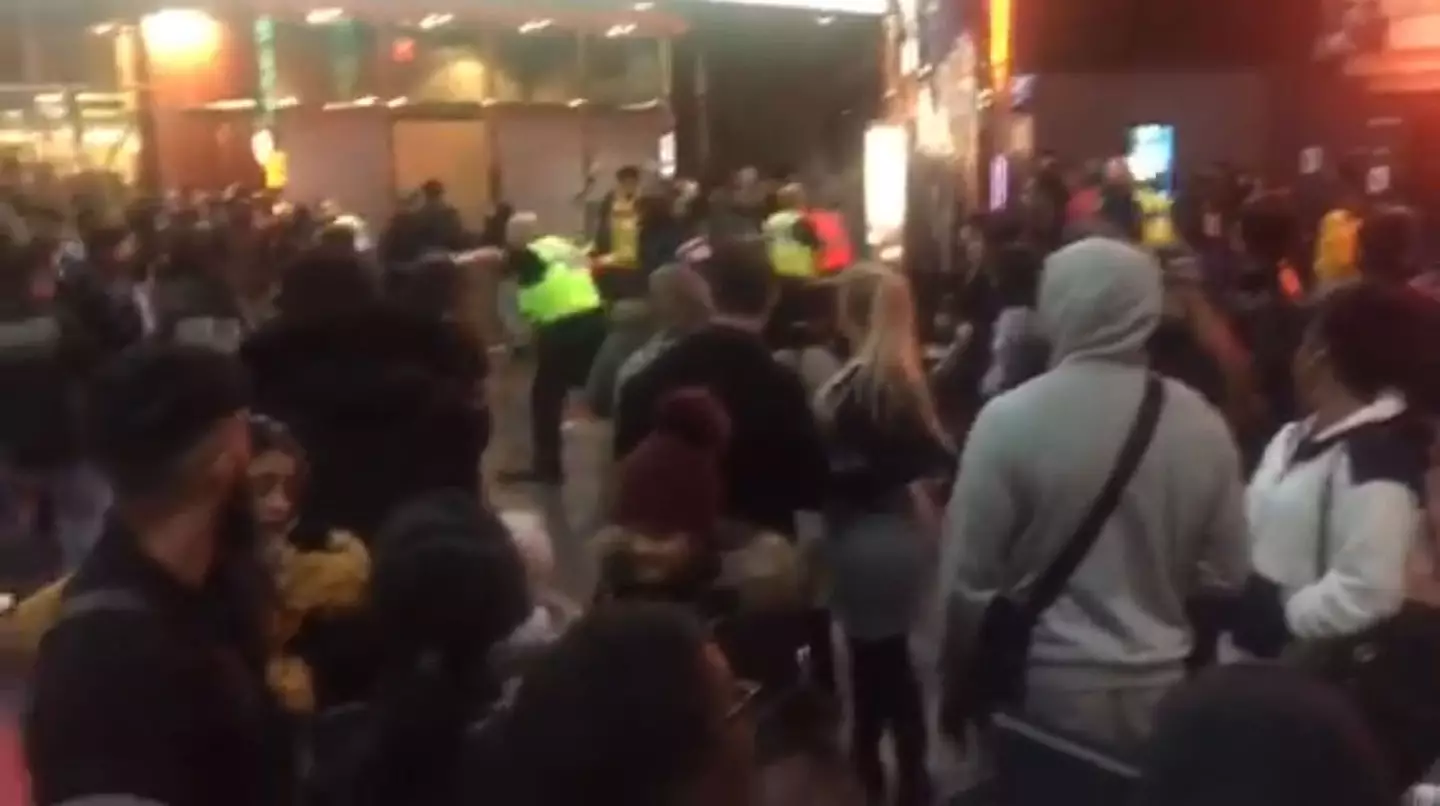
An incident in Birmingham led the film to be pulled from several theatre chains (X/@rachaelallison)
They said in a statement that there had been ‘25 significant incidents’ in that time, a record number, and that police had been called on multiple occasions.
The film is called Blue Story and creator Rapman blasted the ban – questioning whether there were ‘hidden reasons’ behind the ban.
Blue Story follows a pair of best friends who end up on opposite sides of a postcode gang war after one of them is attacked.
Starring Micheal Ward and Stephen Odubola, the film sits at a 93 percent on Rotten Tomatoes, and the film being pulled from cinemas sparked a backlash.
A brawl broke out at a multiplex cinema in Birmingham, with five arrested including a 13-year-old girl, and seven police officers injured.
This led Vue and other cinema chains to pull the film, which itself sparked the ‘No Blue, No Vue’ movement calling to boycott the chain.
The film was created by Rapman, the creative who went on to make Supacell for Netflix which dominated the streamer’s charts upon its release last year.
LADbible spoke exclusively to Rapman ahead of the release of Supacell where he said the situation following Blue Story was ‘insane’.
He said: “I went ‘that’s not fair, I’m an indie filmmaker and this is my first movie’ this could have really put me in a position.
“I was so angry about it. But I wasn’t as angry as the people were, the people were outraged by that.”
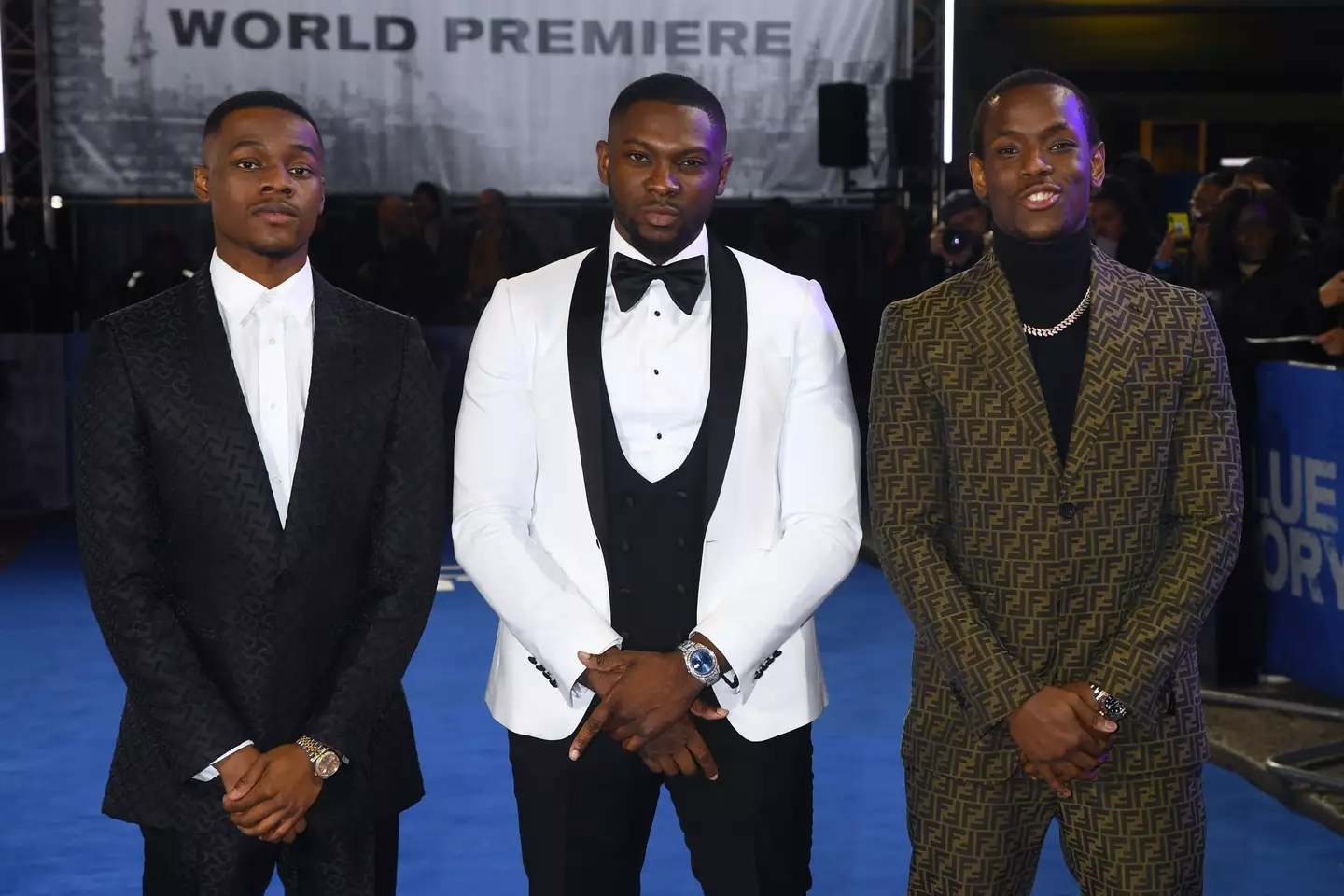
Rapman (central) created the film (Dave J Hogan via Getty Images)
The London-born creative went on to say that the film was unique due to how it catered to young Black teenagers in the UK and, though he was angry about that community being deprived the chance to see the film in the cinema, it ultimately helped the film.
He said: “When I think about it now the press that came from that, the next week everyone went to see it in the cinema,” with some chains continuing to show the film after the ban.
Rapman added: “It made people want to see it, who wants to see this ‘dangerous’ movie.
“It was really hard at the time but everything happens for a reason I guess.”
To say it worked out for Rapman would be more than accurate. As well as going on to direct and write Supacell, a Black-led superhero show which Netflix are bringing back for a season two, Blue Story is now a cult classic.
The film, despite its controversial past, was co-produced by the BBC, and they clearly still believe in it – as it will air tonight on BBC Three.
